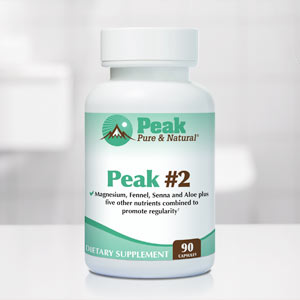My colleagues and I have written a lot here about the dangers of phthalates.
Phthalates are synthetic chemicals used to make plastics more flexible.
They’re found in everything from dish soap and detergent to lotion and deodorant to the carpet and upholstery in your home.
Phthalates are endocrine disruptors. They interfere with the normal functions of the hormones that make our body work.
Chronic exposure to phthalates affects every organ system in the body. They are linked to obesity, asthma and breast cancer, to name a few.
And as if that weren’t enough, we now know that phthalates are doing harm in the womb, impacting a developing baby’s brain and metabolism…
How phthalates damage fetal brains and metabolisms
A study led by researchers at Emory University’s School of Public Health is the first to find evidence of just how a mother’s exposure to phthalates can damage her unborn child’s brain.
The study used the science of metabolomics, which offers a “functional readout” of a body’s health and can be used to understand how environmental factors affect a body’s function.
While the process was complex, the findings couldn’t be clearer:
- Phthalate levels in a mother’s blood during pregnancy were associated with lower levels of hormones important to brain development in a newborn’s blood shortly after birth (in other words, they cause impaired brain development in a newborn).
- High phthalate levels were also linked to lower attention and arousal scores in newborns, indicating impaired brain development during the crucial first days and weeks of a newborn’s life.
- These findings suggest that a mother’s exposure to phthalates while a baby is still in utero may have lasting effects on an infant’s brain development.
Dr. Susan Hoffman, first author of the study, makes a crucial point:
“There is a common belief that the placenta protects the baby from a lot of harmful substances, but this study supports that phthalates are able to cross through the placenta and actually impact the baby’s biology before they are even born and negatively affect their development over time.”
So, it seems that mothers must start protecting their children from the dangers of this world even before they’re born. That’s no easy task, but there are a few ways to decrease exposure…
Ways to cut down on phthalate exposure
Phthalates are known as the “everywhere chemical,” and with good reason…
Besides their use in plastic, they are used to retain the scents in fragrances and to help topical products like lotions and cosmetics stick to and penetrate skin
Here’s just a partial list of products that are highly likely to contain phthalates:
- Nail polish
- Shampoo
- Deodorant
- Sanitary pads
- Baby powder (yes, baby powder)
- Plastic drinking straws
- Detergents
- Air fresheners (even when labeled “all-natural” or “unscented”)
- Vinyl shower curtains, mini-blinds and flooring
- Garden hoses
- Scented candles
- Plastic bottles
- Toys, like bath toys, drinking straws, and rubber ducks
Try to avoid ultraprocessed foods, which hold a higher concentration of di(2-ethylhexyl) phthalate, one of the most common and harmful phthalates.
Phthalates seep into these foods via equipment in processing plants, including conveyor belts, tubing, lids, adhesives and plastic wrap.
Per the Natural Resources Defense Council, a study of cheese products found high levels of phthalates in powdered cheese samples found in boxed mac and cheese, much higher than the concentrations found in cheese slices and natural cheeses like shredded and string cheese (though, unfortunately, all of them contained phthalates).
That means even healthy foods processed and packaged this way harbor phthalates that seep into your food.
Be especially wary of plastic containers. And when you absolutely can’t avoid plastic packaging, take a look at the plastic number. Plastics numbered 3 and 7 are more likely to contain harmful chemicals like phthalates, whereas plastics 1, 2 and 5 are safer.
Try to eat more foods that come in natural wrappers, like fruits, vegetables and fresh meat.
A few more things you can do to protect yourself and your baby:
- Don’t drink bottled water. Stick to tap water and avoid possible contamination.
- Eat cleansing foods. Cruciferous vegetables like broccoli, kale, or Brussels sprouts bind to chemicals and remove them from your body in a process known as chelation.
- Be careful with takeout food. Avoid Styrofoam containers. And never reheat food in plastic containers. The heat will cause phthalates to leach into your food.
Sources:
Using everyday products during pregnancy can affect newborn’s metabolism, study finds — Science Daily
Impact of prenatal phthalate exposure on newborn metabolome and infant neurodevelopment — Nature Communications
Fighting Phthalates — Natural Resources Defense Council
How to Detoxify Plastics (Phthalates) — Functional Medicine University
Read full article here




